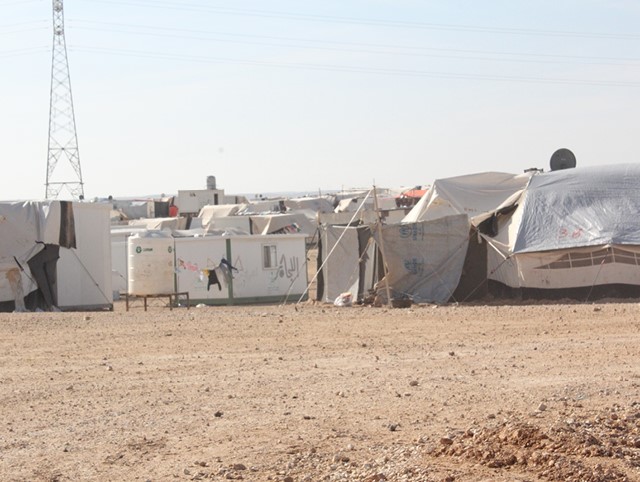A Different Kind of Camping Part VI: Reflections

As my time in Jordan began to wind down, I was dreading returning home. Even though I missed taking a hot shower, among other small luxuries most people take for granted, I didn’t want to leave. I think the main reason was that despite my efforts, I knew I was barely scratching the surface of what these people needed to improve their lives. There are never enough boots on the ground, and here I was, about to board a flight back to the U.S.
Because of my parents’ experience fleeing Pakistan, I always felt empathetic toward the suffering of the extremely poor, the war-stricken, and the vulnerable. Being in Jordan surrounded by such immediate and desperate need completely changed my focus. I returned home more determined to better the lives of others, whether through policy, medicine, or clinical management. Now that I know what I want to do with my life, I’m impatient for it to begin. My education, from undergraduate until the end of post-graduate medical training (about 12 years), is an experiment in delayed gratification. Like many aid workers, I’ve been sucked in and want to do all I can to make a difference now, instead of waiting until my educational requirements are met.
I arrived back home with many more questions than I had answers – big ethical questions for what it means to provide care for others in a volatile environment. By acting as if refugees are a temporary problem, are we denying them the chance to rebuild their lives? Are aid organizations, and by extension aid workers, complicit when they follow government-sanctioned laws that deny people care, and all in the name of secure borders? The decisions politicians make regarding security do change lives, and not always for the better.
Though I’m still dedicated to the medical field, I have lost faith in its position as a “noble profession.” Growing up, I thought health care was immune to economic and political interests. Even being exposed to the American health care system didn’t change my belief that physicians were defenders of the human right to basic medical care. I believed doctors had a duty to heal, regardless of social barriers.
The situation in Jordan ruined any remaining certainty I had that health care was a stalwart ship – a buoy in a sea of political instability. Health care has become politicized (or maybe it’s always been that way), and physicians are often turned into pawns against the world’s most vulnerable if they don’t contest unjust policy. I still believe doctors have a moral obligation to help everyone they can. After all, it’s part of the oath medical students take upon beginning their education.
I think about the refugee crisis in Jordan almost every single day, and it isn’t because Jordan’s history, policies, and bureaucracies are subjects of my research. I think about Jordan because in the quagmire of regional instability are refugees who have lost everything and are only there because they have no other choice. There are families still in desperate need of care, and my time with those families has made me realize that I never want to feel as if I could have done more, whether it be actual clinical work or managing the clinics. I know that my desire to help and make a difference will probably take me back to the Middle East again, or wherever the world needs me.
 The Daily Dose
The Daily Dose
Comments are closed.